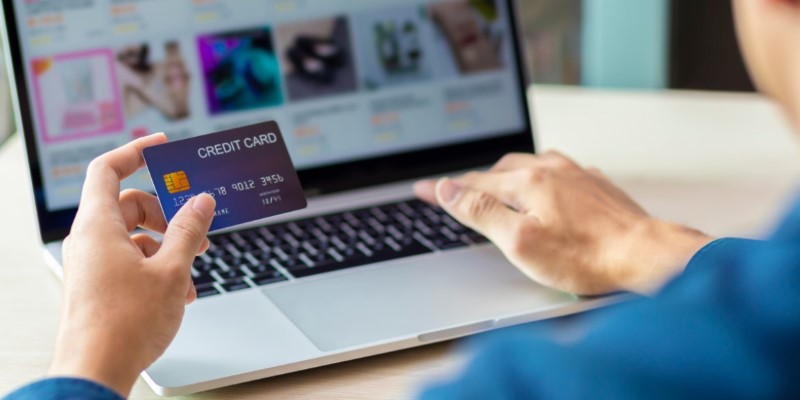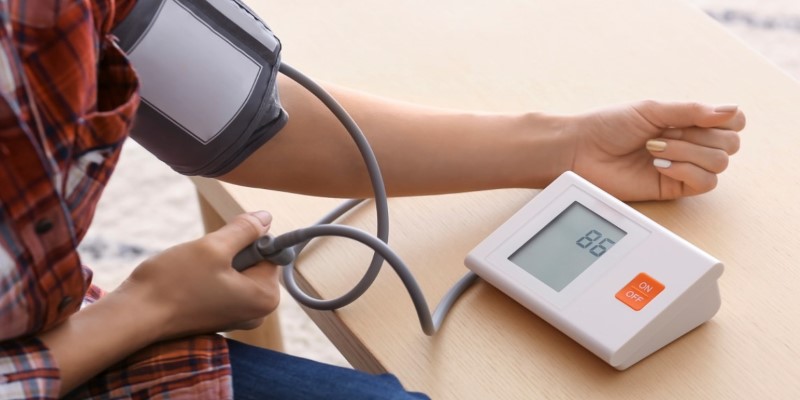In todays digital age, online shopping has become a convenient way to purchase almost anything without leaving the comfort of your home. However, with the rise of e-commerce, cybercriminals have found new ways to exploit unsuspecting shoppers.

Keeping your credit card safe during online purchases is crucial, especially as fraud tactics become more sophisticated in 2024. In this article, well explore actionable steps to protect your credit card information, ensuring you can shop online with confidence while minimizing the risk of fraud.
Here are some top tips to help keep your credit card secure while shopping online.
One of the most fundamental ways to protect your credit card while shopping online is by using trusted websites. Look for recognizable and established brands that have a solid reputation for security. Legitimate e-commerce sites will have encryption measures in place to protect your information.
An easy way to verify a website's safety is to check for "https" at the beginning of the web address. The "s" indicates that the website is secure and encrypted. Additionally, websites with SSL certificates, which often display a padlock icon near the URL, further ensure that your information is protected.
Two-factor authentication (2FA) adds an extra layer of security when you make purchases online. When you enable 2FA, even if someone manages to steal your password, they would still need the second form of verificationusually a text message, email code, or authentication app approval. Most major online retailers, banks, and credit card companies offer this feature, and using it can significantly decrease your risk of credit card fraud.

Be sure to set up 2FA on both your online shopping accounts and your email accounts. Cybercriminals can access your credit card information by hacking into your email, where receipts or payment confirmations are stored.
Using public Wi-Fi networks, such as those found in coffee shops or airports, can be convenient, but they pose a significant security risk. Public networks are often unsecured, which makes it easy for cybercriminals to intercept the data you send and receive, including sensitive information like credit card numbers.
Whenever possible, avoid shopping online while connected to public Wi-Fi. Instead, use your home Wi-Fi network, which should be password-protected, or consider using your mobile data connection for added security.
When shopping online, it's safer to use a credit card rather than a debit card. Credit cards generally offer more protection against fraud. Most credit card companies provide zero-liability policies, which means you wont be held responsible for unauthorized charges. Additionally, credit cards are not directly linked to your bank account, so even if your card is compromised, your savings or checking account wont be immediately drained.
Debit cards, on the other hand, offer fewer protections, and unauthorized withdrawals could leave your account empty. By using a credit card, you ensure a higher level of security while shopping online.
Keeping a close eye on your credit card transactions is an effective way to catch fraud early. Many credit card companies offer mobile apps that allow you to monitor your purchases in real-time. Set up alerts to notify you whenever a purchase is made or when a transaction exceeds a certain amount. This way, you can immediately spot suspicious activity and report it to your bank or credit card company before more damage is done.
Make it a habit to review your statements regularly and look for any unfamiliar transactions, even if they are for small amounts. Cybercriminals sometimes start with small charges to test whether a card works before making larger purchases.
A great way to keep your credit card details safe is by using virtual credit cards. Many banks and financial institutions offer this service, which generates a temporary card number for online transactions. This number can only be used for a specific purchase or within a limited time frame, reducing the risk of your actual card number being stolen.
Similarly, tokenization replaces your credit card information with a random set of numbers, or a token, when you make purchases through certain apps or online platforms. This process keeps your card number hidden from the retailer and anyone who may try to intercept the transaction.
Using secure payment gateways, such as PayPal, Apple Pay, or Google Pay, can add an extra layer of protection when shopping online. These services act as intermediaries between you and the seller, preventing your actual credit card information from being shared with the merchant.

When you use these payment methods, your card details are stored securely within the platform, and each transaction is encrypted, reducing the risk of theft. Furthermore, many of these services offer fraud protection policies, which can provide additional peace of mind.
Phishing attacks remain a common tactic used by cybercriminals to steal credit card information. These attacks often come in the form of fake emails or texts that appear to be from legitimate companies, asking you to click on a link to verify a transaction or claim a reward. Clicking on these links can lead to malicious websites designed to steal your details.
To avoid phishing scams, never click on links from unknown sources or unsolicited emails. Instead, go directly to the retailer's website or financial institution to verify any claims.
Another crucial aspect of credit card safety when shopping online is ensuring that your devices are secure. Always keep your operating system, browser, and security software up-to-date. These updates often include patches for vulnerabilities that cybercriminals could exploit to steal your information.
Additionally, installing reputable antivirus software can help detect and block malware that could compromise your device and capture your credit card details.
Shopping online offers convenience and endless options, but it also comes with risks. To protect your credit card and avoid becoming a victim of cybercrime, its essential to follow best practices like using trusted websites, enabling two-factor authentication, and avoiding public Wi-Fi for transactions. Regularly monitoring your accounts, using secure payment gateways, and keeping your devices updated will further strengthen your defenses.

By Sean William/Sep 27, 2024

By Mason Garvey/Sep 27, 2024

By Martina Wlison/Sep 20, 2024

By Madison Evans/Sep 20, 2024

By Sid Leonard/Oct 09, 2024

By Nancy Miller/Oct 15, 2024

By Isabella Moss/Oct 15, 2024

By Triston Martin/Sep 27, 2024

By Paula Miller/Oct 16, 2024

By Sean William/Oct 16, 2024

By Maurice Oliver/Oct 15, 2024

By Madison Evans/Oct 15, 2024